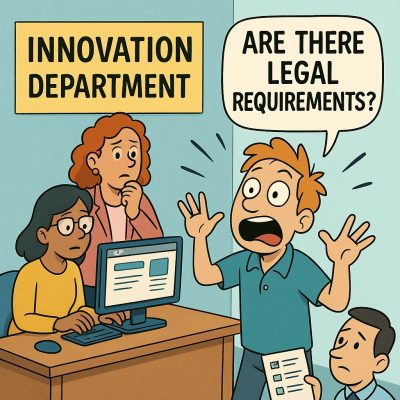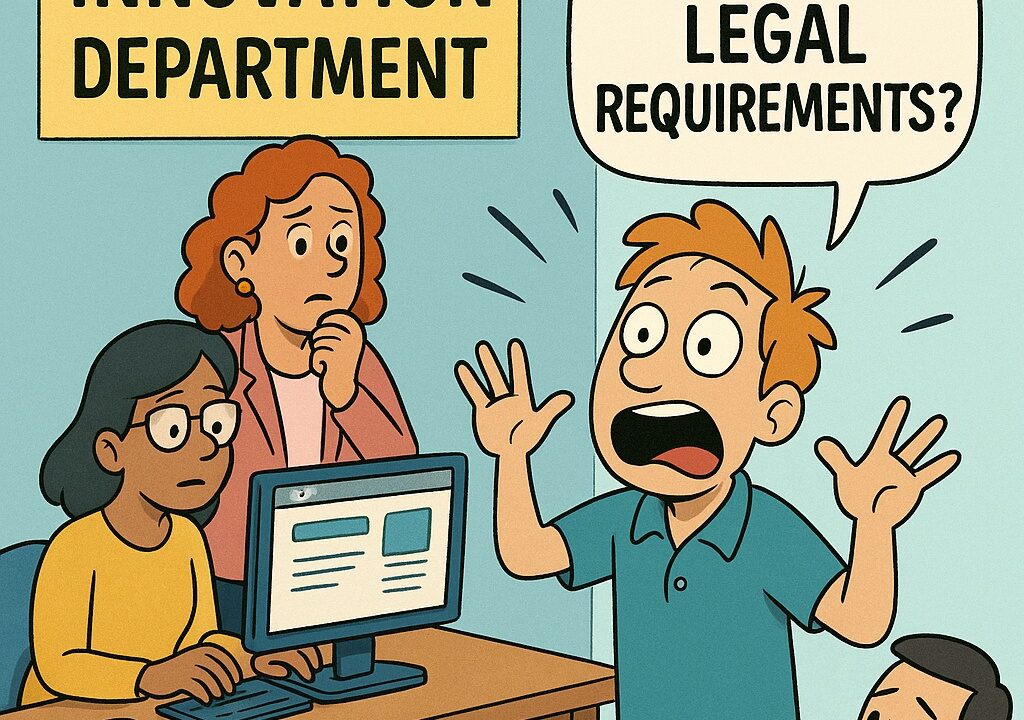- by Wouter Nordsiek
- 0 Comments
- Article
- 24 October 2025

Is digital accessibility a legal requirement?
Yes, in most countries digital accessibility is a legal requirement. But it is also a market advantage (can increase your annual turnover by 15%). And accessible solutions support inclusion and participation for persons with disabilities. Be careful, the EU requirements for digital accessibility extend further than just your website. I may also include packaging, manuals, helpdesk, chatbot and your building.
Most countries (like US en EU) have accessibility included in anti-discrimination laws, but more recently they have separate laws and regulations specifically addressing digital accessibility. Like the European Accessibility Act, Section508, etc. There is a good overview of worldwide laws and regulations available on the W3C accessibility policies page: https://www.w3.org/WAI/policies/ . If your innovation is meant for the EU, and you want more detailed information per country, then the AccessibleEU monitoring reports of EU Member States may be of interest to you: https://accessible-eu-centre.ec.europa.eu/accessibility-monitoring_en
Europe has launched a number of Directives (laws) covering accessibility requirements for digital accessibility. Examples are the European Accessibility Act (implemented in laws of all EU member states) for accessibility of products and services, the Web Accessibility Directive for accessibility of public sector websites and apps, the AI act, Procurement Directives etc. The AccessibleEU center provides a good overview of laws and regulations in the EU in their report: https://accessible-eu-centre.ec.europa.eu/accessibility-legislation-european-level_en
Non-compliance is addressed in different ways by the national Market Surveillance Authorities. They mostly start with sending letters. Most MSA’s also provide an online form where non-compliance can be noted. Companies are encouraged to make note of non-compliance before this is discovered by the MSA’s. In some countries non-compliance with accessibility standards like EN 301549 or WCAG can lead to significant fines. In the EU, this applies to both products and services sold to consumers (B2B is exempt, as are companies with an annual turnover below 2M and less than 10 employees). It even extends to things like packaging, conformance statements, manuals, service addresses, phone numbers, helpdesk, chatbots and the built environment.
Make sure you address the requirements early in the process. Include them in your activities before, during and after development. And always try to involve persons with disabilities (and accessibility experts) from the start. Specifically in case you are developing new technology solutions that are not yet clearly covered by existing guidelines and standards or by existing best-practices. Make sure you collect this information during all phases of your product/service lifecycle.
Top 5 legal links:
Use this form to get more information.




